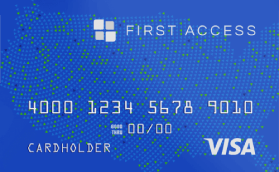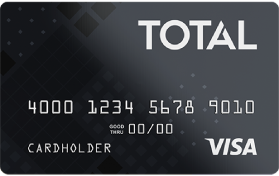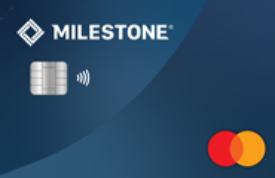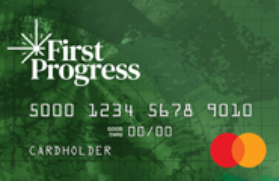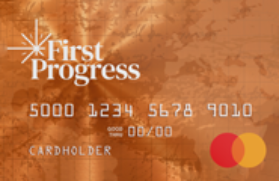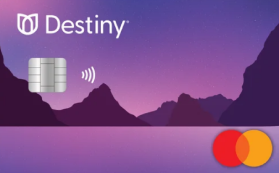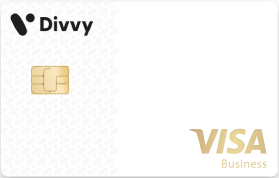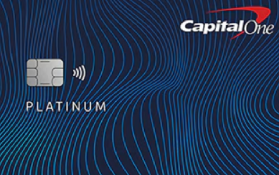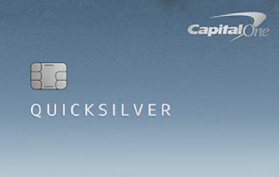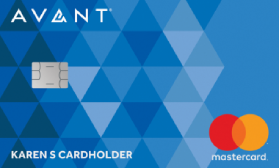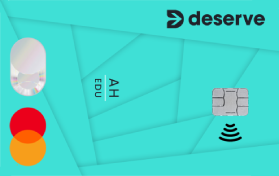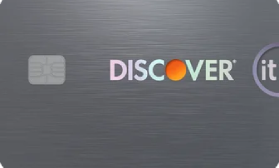Best credit cards for Fair/Average Credit
An average credit score (typically 580 to 669, according to Experian), doesn't mean you can't enjoy perks like rewards or no annual fee.
There are cards for those with fair credit. If you are not sure about cards you could be eligible for, we're here to walk you through some fair or average credit card options to help you make the best decision for your finances. See our picks for the best credit cards for fair credit.
Short Review of Best Credit Cards for Fair/Average Credit
| Name | Best for | Rewards Rate | APR | Apply |
|---|
Upgrade Cash Rewards Visa® | Good credit score | 1.5% Cash Back on payments. | 14.99% - 29.99% Regular | Apply now On Upgrade‘s website |
| Low income | 1% Earn 1% cash back rewards on payments made to your First Access Credit Card. | 35.99% | Apply now On the First Access Visa® Card secure website |
| | 1% Cash Back on all purchases. | 35.99% * | Apply now On the Total Visa® Card secure website |
| Unsecured | This card doesn't offer cash back, miles or points. | 35.9% | Apply now On Milestone Mastercard® website |
First Progress Platinum Prestige Mastercard® Secured Credit Card | | 1% Cash Back rewards on payments. | 14.24% Variable | Apply now On First Progress’s site |
First Progress Platinum Select Mastercard® Secured Credit Card | | 1% Cash Back on payments made to your First Progress Secured credit card account. | 18.24% Variable | Apply now On First Progress’s site |
The Bank of Missouri Destiny® Mastercard® | Unsecured | This card doesn't offer cash back, miles or points. | 35.9% | Apply now On The Bank of Missouri‘s site |
| | 2x - 7x:Points on restaurants.2x - 5x:Points on hotels.1.5x - 2x:Points on recurring software subscriptions.1x - 1.5x:Points on everything else. | None | Apply now On Cross River Bank‘s site |
Capital One Platinum Credit Card | Without SSN | This card doesn't offer cash back, miles or points. | 29.99% Variable | Learn more |
Capital One Quicksilver Cash Rewards Credit Card | Cash Back, No Annual Fee, Daily use | 5% Cash Back on hotels and rental cars booked through Capital One Travel.1.5% Cash Back on every purchase. | 19.99% - 29.99% Variable | Learn more |
| Fair credit | This card doesn't offer cash back, miles or points. | 29.24% - 35.99% Variable | Learn more |
| Cash Back, Without SSN, Student | 1% Cash Back on all purchases with your Deserve EDU Mastercard. Once approved, you'll automatically start earning Cash Back on all purchases. | 22.99% Variable | Learn more |
Discover Bank Discover it® Secured | Cash Back, No Annual Fee, Young couples, For bad credit | 2% Cash Back at gas stations and restaurants on up to $1,000 in purchases each quarter.1% Cash Back on all other purchases. | 28.24% Variable | Learn more |
Celtic Bank Indigo® Mastercard® | Unsecured | This card doesn't offer cash back, miles or points. | 24.9% | Learn more |
Who should apply
Upgrade Cash Rewards Visa®
The Upgrade Cash Rewards Visa® Сredit Сard is great for those who want to use a line of credit to make larger purchases. Because this card has a high APR — and those with a fair credit score will likely have to manage a higher APR — it's probably the most beneficial for those who don't let their card charges linger until the next month.
The card will ideally suit families with at least fair credit whose top expenses include home and car maintenance and health-related spending.
Read more about Upgrade Cash Rewards Visa®
Milestone® Mastercard®
This card is geared toward individuals who either have a lower credit score or do not have an extensive credit history. If you haven't been able to get approved for a credit card, you may want to consider this one as an option. But, make yourself aware of the APR details and card limit information before committing.
Read more about Milestone® Mastercard®
Capital One Platinum Credit Card
Individuals who don't need a lot of bells and whistles like rewards points or any related perks and who only need standard credit card functions may be a fit for the Capital One Platinum credit card.
Read more about Capital One Platinum Credit Card
Capital One Quicksilver Cash Rewards Credit Card
This is one to consider if you're looking for a card with cash back options. Additionally, Capital One comes with perks that can help you improve your credit: free credit monitoring and fraud liability protection. If these benefits are important to you and you don't mind the annual fee, this is a viable option for people with fair credit.
Read more about Capital One Quicksilver Cash Rewards Credit Card
WebBank AvantCard
You may consider the AvantCard if you aren't interested in rewards and only need a basic card. It also allows you to eliminate overlimit fees and security deposits.
Read more about WebBank AvantCard
Celtic Bank Deserve EDU
If you're a student just beginning their financial journey and need a card to build your credit, this is a card to add to your research list. The APR listed in their cardholder agreement is 22.99%, which is a bit more manageable than other options on this list. This card is also great for those who want to conduct all of the application and card management process online.
Read more about Celtic Bank Deserve EDU
Discover Bank Discover it® Secured
If used properly, a secured card like this one can help you to improve your credit over time. If you're primarily focused on building credit, don't need a higher credit line, but still want perks that unsecured credit cards have — like cash back — then this card is worth checking into.
Read more about Discover Bank Discover it® Secured
Celtic Bank Indigo® Mastercard®
Those with average credit scores on the lower side of that tier may want to try this card. They make it clear on their website that they're open to individuals with lower credit scores and those who need to build their credit. However, beware of any potential high APRs or fees.
Read more about Celtic Bank Indigo® Mastercard®
What is considered fair credit?
According to Experian, fair credit scores are between 580 and 669. Here's a breakdown of each credit score range:
| Credit score category
| Range
|
|---|
| Poor
| 300 - 579
|
| Fair
| 580 - 669
|
| Good
| 670 - 739
|
| Very good
| 740 - 799
|
| Exceptiona
| 800 - 850
|
As you take steps to build your credit, it helps to understand how FICO calculates credit scores. Knowing this can help you take the proper steps to better your credit profile over time.
Payment History
Your payment history determines 35% of your FICO score. This number is important to your credit score because creditors use your payment history to assess your risk. The more on-time payments you make, the less risky you are.
Credit usage
Credit utilization goes into 30% of your credit score calculation. Credit utilization is the ratio of your entire credit balances and credit limits. A high ratio may mean you're overextended, which could add to creditors and lenders seeing you as a risk.
Credit history
Creditors also heavily consider the length of your credit history. They look at the age of your credit accounts and how long it's been since you established them. This component accounts for 15% of your credit history.
Credit mix
The credit types you have are 10% of the calculation. FICO considers different types of credit accounts: personal loans, credit cards, mortgages, etc. Typically, the more diverse the credit mix you have, the more of a positive impact it'll have on your FICO score.
Number of recent inquiries
Typically, creditors consider a large number of hard credit inquiries, like those you can get by applying for credit cards, in a short period a risky activity. The number of recent inquiries you have contributes to the 10% of the credit score calculation.
What to know before applying for a credit card
Applying for a credit card can be a time-consuming or involved process, depending on how prepared you are. Knowing what you'll probably need before applying will help make the process smoother. As you're deciding between cards, keep these things in mind.
Credit limit
Each card comes with a credit limit. This number is the maximum amount you can spend. Every purchase you make is subtracted from this amount. As you pay your credit card back, the amount will increase until it reaches the credit limit again.
For example, if your credit limit is $10,000 and you make a $500 purchase, you'll reduce your limit to $9,500. However, if you pay off $250, the limit will be $9,750 in case you didn’t accrue any interest.
Credit limits are determined by your credit score. Some credit card companies disclose the credit limit ranges they offer. This information can help you determine whether to apply. But keep in mind that reaching the credit limit will increase your credit utilization ratio and decrease your credit score.
Fees and APR
Credit cards can come with a variety of fees. Some examples of potential additional charges include late fees, foreign transaction fees, and even an annual fee. You'll also have to deal with annual percentage rates (APRs). This number is used to determine the amount you have to pay in case you don’t pay the full balance on time.
Credit cards have annual interest rates, and unlike just interest rates, APRs can also include other administrative costs. APRs are typically determined using the prime rate and an individual's creditworthiness. APRs should factor into your selection, as a card with an APR that's too high can make monthly payments unmanageable if you don’t pay your balance in full each month. Although, we strongly recommend not carrying any balances at all.
Rewards
A card with cash rewards can help you make the most of your spending. Some cards may offer 1% cash back on all purchases or may only offer cash back in specific categories, like when you spend at a grocery store or on travel.
For example, if you spend $100 on groceries and your card offers 2% cash back on purchases in that category, you would get $2 cash back. Some cards will allow you to redeem cash back at specific merchants, while others may let you redeem the cash back for actual money.
Ability to upgrade
Some cards will allow you to upgrade your card. This situation can look like upgrading to a higher credit limit — which some credit card companies will automatically do if you've made on-time payments.
It can also look like getting a card that offers more perks. For example, the Discover it® Secured allows you to upgrade to a standard unsecured card once you've met their expectations after a particular time.
Pros and Cons of cards for fair credit
Credit cards for fair credit are a great way for individuals with lower credit scores to still benefit from perks, like rewards points, and have the opportunity to build their credit. However, there are both advantages and disadvantages for individuals with average credit to get a card geared towards them:
Pros
- Build your credit: Some of the best credit cards for fair credit options above offer credit monitoring tools and report credit card activity to the three credit bureaus, which can help you to improve your credit score.
- Get access to rewards points: Many credit cards for fair credit consumers offer cash back rewards.
- Take advantage of technological conveniences: Many newer cards allow you to handle all your banking from your mobile phone. This makes it easier to keep track of your card balance and ensure all the payments happen on time.
Cons
- You may have a higher APR: Because you have a lower credit score, you may have to deal with an APR that's a bit on the higher side. Before you commit to any credit cards, make sure that you will be able to pay out your balance in full or afford your monthly payments.
- You may not get a higher credit limit: Your credit limit is also typically determined by your creditworthiness. So, you may not have access to a higher credit limit because of having fair or average credit. This situation can be an issue if you need to make larger purchases.
- A misstep can hurt your finances: Everyone should treat a credit card cautiously. However, those with lower credit scores need to keep a closer eye on spending and monitor their balances. Missing a payment can do a lot of damage to your credit score.
How to choose a credit card for fair credit
Before applying for a credit card targeted at people with fair credit, it's helpful to know how to choose the best credit card for your needs. Here's some insight into what you need to look for in credit cards for fair credit:
- Rewards - Just because you have fair credit doesn't mean you cannot make the most of your spending. Look for cards that offer cash back rewards, even if it's only 1%.
- Fraud protection - The last thing you want is fraudulent spending on your card to tank your credit score. This feature can help protect your card if you lose it.
- Credit monitoring - Cards can help you build your credit, mainly if you make on-time payments. Having the option to monitor your credit over time can benefit you and allow you to see your progress.
What to avoid with credit cards for fair credit
- High APRs - While your APR will be higher than someone with good or excellent credit, you still want to get the best APR possible. Try to stay away from APRs in the mid to late 20s, and avoid APRs in the 30s. Additionally, make a point to pay off your balance in full so you don’t have to deal with paying interest.
- Annual fee - You want to avoid any cards with an annual fee, as many fair credit card options don't have them. Some cards, however, offer rewards that can offset an annual fee
How to make the most of a credit card for fair credit
Your primary goal for your credit card should be to use it to improve your credit score. Options like those we mentioned above, can help you build your credit over time. One of the best ways to make the most of your card is to make on-time payments.
How to apply for a credit card with fair credit
How you can apply for a credit card with fair credit will depend on each card company’s policy. So, be sure to read the instructions before you apply. Here are a few basic steps you'll likely need to take to apply:
- Check your credit score. Before considering your options, know your credit score. Knowing where you are will help you see if you can meet the company's recommended credit score requirements.
- Research the best option. Find the best fair credit card option. You should see if it comes with an annual fee, high APR, or foreign transaction fee. Try to go with the card that has the best options for your financial situation.
- Pre-qualify. Pre-qualifying allows you to see what APR and terms you are eligible for before you commit without impacting your credit score.
- Gather the right documents. You may need to provide a social security number, proof of income, and contact information like names and addresses.
- Submit the application. Submit your application per the directions by the company.
What do I do if I'm rejected for a credit card
There are times when you might be rejected for a card. This can be due tovarious reasons, and you may not always know why.
Here are a few common things that can cause a rejection:
- Too many inquiries.
- A high credit card balance.
- A credit score that's too low to meet the company’s recommended credit threshold.
- The length of credit history is too short.
First, you can request a reconsideration, where the company reviews your application again. If that doesn't help, you can take specific steps to improve your chances in the future. This could be checking your credit reports for errors, like misspelled names or fraudulent charges, and requesting them to be cleared.
Next, you can decrease your credit usage and pay off any outstanding debt. Lastly, consider getting a secured card to help you refine your credit, and then opt for an upgrade to an unsecured card when possible.
Ways you can improve your credit score
Here are a few ways that you can build your credit and take steps to improve it over time:
- Remove any errors. If there is any incorrect information on your credit report, including any charges you didn't make, work with the credit card company to correct them.
- Go easy on new credit inquiries. Hard inquiries can decrease your credit score. So, stay away from applying for any credit and financing.
- Pay down credit card debt. If you have high credit usage, you can improve your credit by paying off your balance.
- Pay your credit bills on time. Late bill payments can be reported to the three credit bureaus and cause your credit score to drop. Therefore, make sure you're paying your bills, including credit cards, before the deadline.
Be patient with these tactics, as it can take months to see a significant increase in your credit score.
Ultimately, credit cards help you in building credit because they allow you to show a history of credit payments and activity. Responsibly handling a credit card can help you diminish your risk to creditors and improve your credit score.
FAQ
How long does it take to build fair credit?
How long it takes to improve and build your credit depends on how well you manage your debt.
Are there credit cards for fair/average credit with Instant Approval?
While receiving fast approval for a fair or average credit card is possible, it will depend on how quickly you complete your application and if the credit card company has any concerns.
Are there any High-Limit credit cards for fair/average credit?
Most fair and average credit cards seem to have lower credit limits. However, the Petal® 2 “Cash Back, No Fees” Visa® and Upgrade Cash Rewards Visa® cards have high limits at $10,000 and $25,000, respectively.
What are some good credit cards for fair credit with no deposit?
The Capital One Quicksilver, Upgrade Cash Rewards Visa®, and Petal® 2 “Cash Back, No Fees” Visa® credit cards are all viable options for people with fair credit since they offer a lot of perks, including a wide range of credit limits and cash back options.
Is it easy to get approved for a card with fair credit?
Your ability to get approved for a credit card with fair credit will depend on factors like income, credit history, and credit usage. You may also need to meet their recommended credit score standards. The better those elements are, the easier it will be to get approved.
What is the best balance transfer credit card for fair credit?
Balance transfer options are relatively sparse for people with fair credit. However, you may want to consider options like the Navy Federal Credit Union — if you've served in the military — as they don't have any balance transfer fees.




